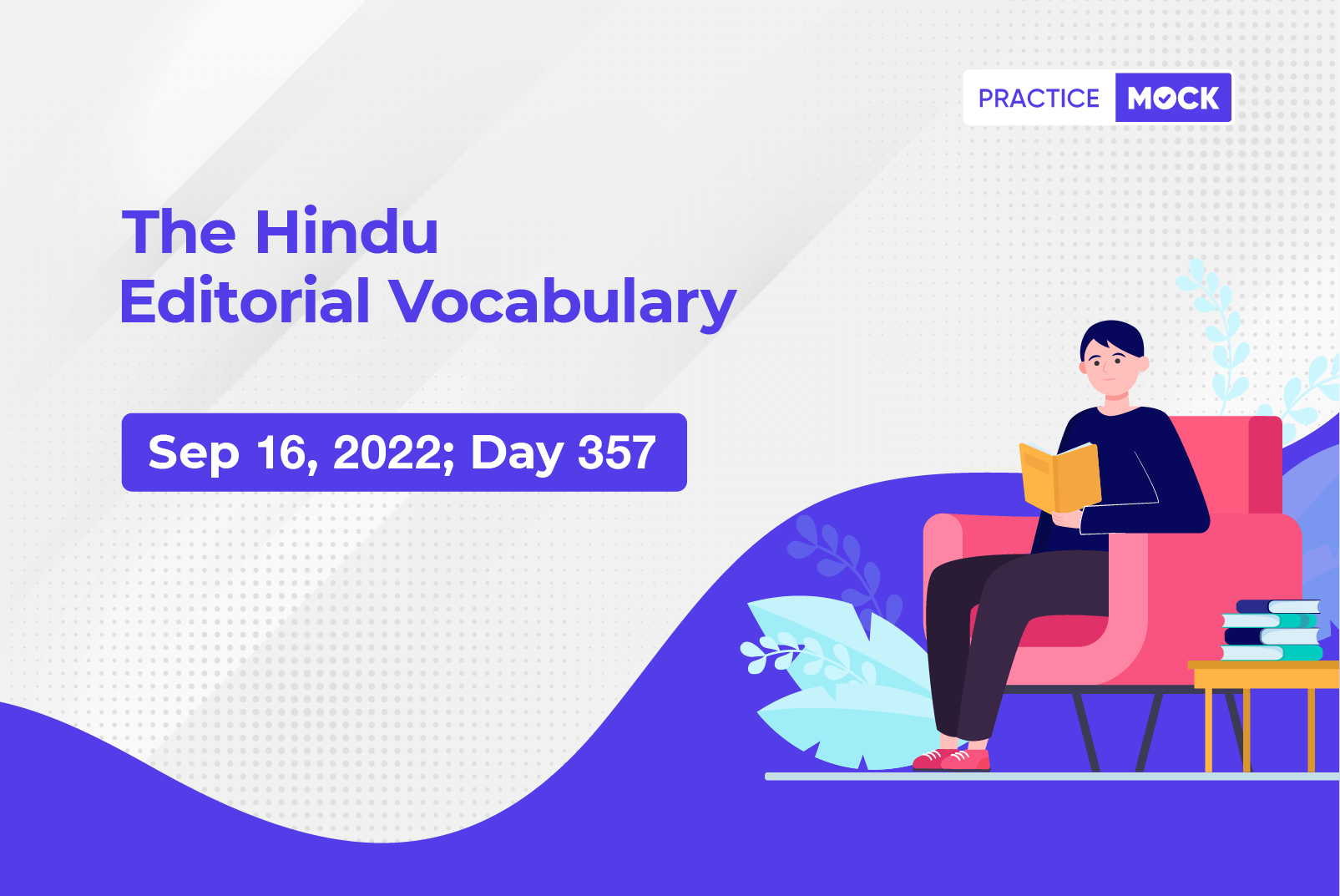| Difficult Word/ Phrase | Contextual Sense |
| Arbitrary | Based on or subject to individual discretion or preference or sometimes impulse or caprice |
| Exclusionary | Tending to exclude; causing exclusion; exclusive |
| Uphold | Keep or maintain in unaltered condition; cause to remain or last |
| Trample | to walk on somebody/something and damage or hurt him/her/it |
| Hastily | In a hurried or hasty manner |
| Chunk | A substantial amount |
| Ceiling | An upper limit on what is allowed |
| Stringent | Demanding strict attention to rules and procedures |
| Explicitly | precisely and clearly expressed, leaving nothing to implication |
| Reiterate | To say, state, or perform again |
| Render | Pass down |
Arbitrary (Based on or subject to individual discretion or preference or sometimes impulse or caprice) and exclusionary (Tending to exclude; causing exclusion; exclusive): On EWS quota
Even if EWS quota is upheld (Keep or maintain in unaltered condition; cause to remain or last), eligibility will have to be properly defined
A Constitution Bench led by Chief Justice of India U.U. Lalit is now examining the validity of the 103rd Constitutional Amendment, which provides for 10% reservation to the economically weaker sections (EWS), excluding Other Backward Classes, Scheduled Castes and Scheduled Tribes who already have reservation in higher education institutions and government jobs. The Bench has finalised three issues for hearing — whether the amendment has breached the Constitution’s basic structure by permitting the state to make special provisions; whether it does so in relation to admissions to private unaided institutions and, lastly, if the exclusion of OBC/SC/ST communities from the scope of the quota tramples (to walk on somebody/something and damage or hurt him/her/it) on the basic structure. These are valid questions and it could be argued that the legislation of the reservation in 2019 was done hastily (In a hurried or hasty manner) without due diligence of the criteria adopted. For example, the setting of an annual family income of ₹8 lakh as a ceiling to determine if someone belongs to the EWS is clearly problematic. If available consumer expenditure surveys such as the NSSO report, ‘Key Indicators of Household Consumer Expenditure, 2011-12’, are relied on, a large chunk (A substantial amount) of the population will be eligible for reservations in the “below Rs. 8 lakh” EWS category and not just the truly deserving sections of the poor. A government-appointed committee submitted that this ceiling (An upper limit on what is allowed) was reasonable, but it could not adequately explain how the income criterion was “more stringent (Demanding strict attention to rules and procedures)” than the one for the OBC creamy layer. Also, the ₹8 lakh figure did not correspond to any data on the estimated number of EWS persons in the population with incomes related to it.
Petitioners have also argued that the net effect of the exclusion of Backward Classes and SC/ST aspirants from the EWS has been that they are now denied an opportunity to compete in the general category to the extent of 10%, in effect, limiting the quota to the “forward classes”. This is a valid argument. Even if the Court agrees to maintain that reservations can be provided on economic basis — something that has been explicitly (precisely and clearly expressed, leaving nothing to implication) denied so far with only social and educational backwardness being mentioned in the Constitution and reiterated (To say, state, or perform again) in several judgments — excluding people of certain communities from this benefit despite their belonging to the EWS renders (Pass down) the legislation discriminatory. In recent recruitment and entrance examinations such as the UPSC and JEE, marks cut-offs for admissions were lower for the EWS quota than that of the OBCs. In essence, if an income criterion for identifying the economically weaker sections has to be the basis, it must arrive at a clearly determined figure for the limit unlike the ₹8 lakh figure, and all sections of society, irrespective of caste, should be eligible to avail of reservation under this category.
Want to improve your vocabulary further? Download the Lists of Word-Meanings of Previous Months here.
- Sign Up on Practicemock for Updated Current Affairs, Free Topic Tests and Free Mini Mocks
- Sign Up Here to Download Free Study Material
Free Mock Tests for the Upcoming Exams
- IBPS PO Free Mock Test
- RBI Grade B Free Mock Test
- IBPS SO Free Mock Test
- NABARD Grade A Free Mock Test
- SSC CGL Free Mock Test
- IBPS Clerk Free Mock Test
- IBPS RRB PO Free Mock Test
- IBPS RRB Clerk Free Mock Test
- RRB NTPC Free Mock Test
- SSC MTS Free Mock Test
- SSC Strenographer Free Mock Test
- GATE Mechanical Free Mock Test
- GATE Civil Free Mock Test
- RRB ALP Free Mock Test
- SSC CPO Free Mock Test
- AFCAT Free Mock Test
- SEBI Grade A Free Mock Test
- IFSCA Grade A Free Mock Test
- RRB JE Free Mock Test
- Free Banking Live Test
- Free SSC Live Test


